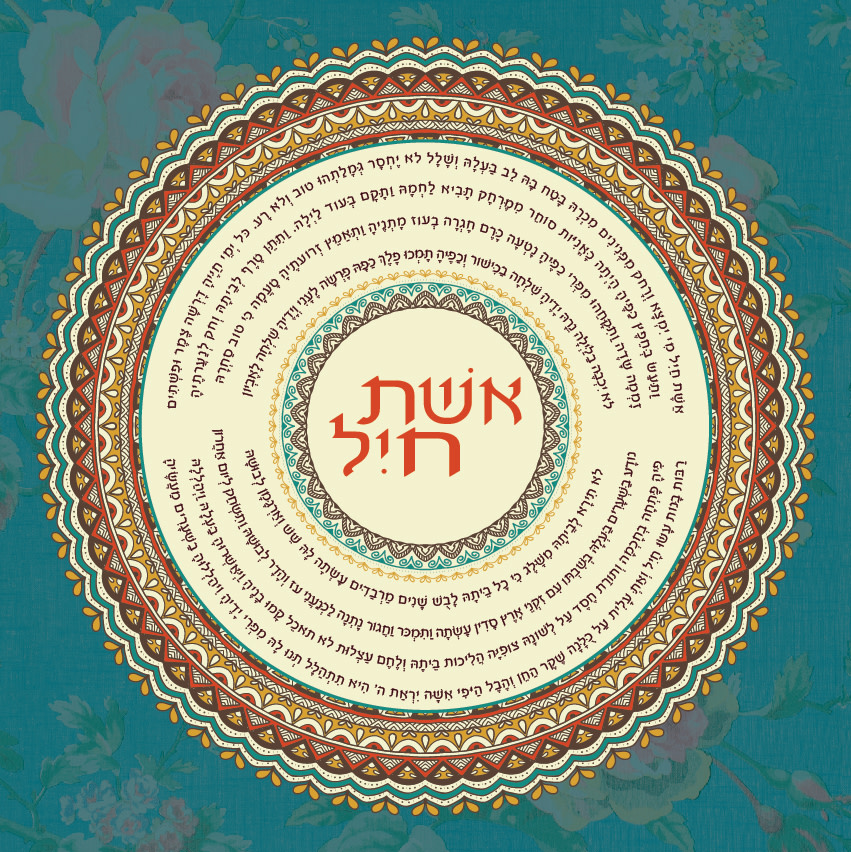In February 2007, Shabbat Shalom featured an op-ed piece titled “Flipped Over the Wig” by Barbara Bensoussan.
The article (pro-tichel, anti-sheitel) received numerous comments and continues to generate them nearly four years later! One of Mrs. Bensoussan’s arguments was the following:
“Kol kevudah bat melech penimah”, the tehillah (Psalm 45:14) tells us: “The glory of the princess resides within”. Our most important qualities are the inner ones, our middos, even though our outside appearance should be worthy of the noble character inside.
It’s a reference we hear repeatedly, although ideally a person’s inner qualities ought always outweigh external appearances, both male and female. What’s additionally worth pondering is that while “kevudah bat melech penimah” easily relates to issues of modesty, is there a locational limitation on the realm of activity for women?
In 2006, Yael Weil also wrote a compelling and highly commented upon article regarding sheitels (which she wears), titled: “Undercover: A Woman’s Journey of Understanding Modesty”
In it, she writes of the Matriarchs (Sarah, Rivkah, Rachel, Leah) referred to as “nashim ba’ohel – women of the tent”, but points out that while this description reflects the crowing virtues of modest dress and conduct in the presence of others, it is not a literal description of where they spent their time:
“I do not believe that staying indoors is what made our foremothers such wonderful individuals. What made them so outstanding was the fact that their lifestyles and their decisions reflected their desire to do the right thing, to do what G-d wanted them to do, not to please or gain approval from anyone “outside of the tent.” Sarah sent away Ishmael, and Rebecca encouraged Jacob to secure the blessing intended for his brother. Rachel refused to embarrass her sister, although it meant that they would have to share a husband, and Leah prayed that the son G-d was giving her be given to Rachel instead.
G-d testifies, with story after story, that the motives of our matriarchs were always pure, that no matter how it looked from the outside, they were always seeking truth and justice. They led private lives and walked modestly with G-d, yet they steered the destiny of the Jewish people. Being “women of the tent” did not prevent them from leaving their mark on the world.
In our generation, women do not stay at home in our “tents.” We have jobs, do volunteer work, teach, learn, socialize; in short, we are out there. But that doesn’t mean we can’t walk modestly with G-d. When I put a covering on my head, it makes me aware that G-d is above me and that whatever I set out to accomplish, I can do only with His trust and assistance.”
Yael Weil’s point is undeniable. In our generation, women are “out there”, and it seems they were “out there” even when King Solomon penned Eishet Chayil, A Woman of Valor (Proverbs 31), because as King Sol also said, “there is nothing new under the sun”:
- She is like a merchant’s ships; from afar she brings her sustenance. (she wholesales!)
- She considers a field and buys it; from the fruit of her handiwork she plants a vineyard. (she dabbles in real estate and commercial investment portfolios!)
- She girds her loins with might and strengthens her arms. (she works out at a health club!)
- She senses that her enterprise is good, so her lamp is not extinguished at night. (she’s an entrepreneur who’s up late at night researching the Internet!)
- She fears not snow for her household, for her entire household is clothed with scarlet wool. (she can snow blow the driveway prior to carpool and shopping!)
- Well-known at the gates is her husband as he sits with the elders of the land. (she’s a PR consultant and a search engine optimizer!)
- Garments she makes and sells, and she delivers a belt to the peddler. (she retails!)
- She opens her mouth with wisdom, and the teaching of kindness is on her tongue. (she’s an educator!)
- She anticipates the needs of her household, and the bread of idleness, she does not eat. (she’s an accountant, an economist, and a life coach!)
- Give her the fruit of her hands, and she will be praised at the gates by her very own deeds (she’s a financial manager with her own ATM card!)
Which is why I’m pleased to mention Yael Weil’s workshop on “How Perfect Must a Woman Be? In Search of the Real Eishet Chayil” . It’s just one of many fantastic topics on offer at the OU’s One Day Conference on Jewish Life, Sunday January 16th. The conference is open to all, and among the impressive list of speakers there are numerous professional women.
Physical charms are false, and beauty may be vain, but I’m glad Yael Weil and other women are coming out of their tents to speak. And you are invited because the OU looks forward to welcoming women (and men) who come out of their tents to listen! I certainly plan on being one of them. To find out more, please visit: OU Convention Schedule
The words of this author reflect his/her own opinions and do not necessarily represent the official position of the Orthodox Union.
